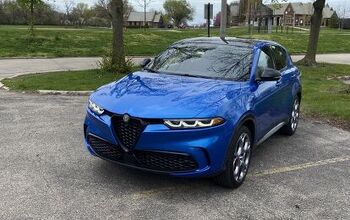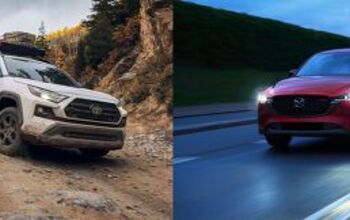FTC Resumes Review Of Fuel Economy Advertising Guidelines
The Federal Trade Commission voted 4-0 Thursday to resume its review of fuel economy claims in advertising by automakers and dealers, and whether or not the agency should revise the 40-year-old guidelines governing them.
The Detroit News reports the FTC had been considering making changes to the Guide Concerning Fuel Economy Advertising for New Automobiles since 2009 to help “marketers avoid deceptive or unfair claims” such as those that befell Hyundai, Kia and Ford over the past few years. The agency paused in 2011 until after the Environmental Protection Agency’s new fuel economy labeling requirements were in place, as well as to look over its own Alternative Fuel Rule.
The FTC plans to go over general and unspecified fuel economy claims in advertising, as well as define Combined Fuel Economy for electric vehicles, all in an effort to remove outdated language and establish clearer information on advertised economy going forward. It is currently asking for comments on updates to reflect the new EPA guidelines and MPG claims, and the need for guidance on alternative fuel vehicle claims. The comments are due by July 10.
Seattle-based writer, blogger, and photographer for many a publication. Born in Louisville. Raised in Kansas. Where I lay my head is home.
More by Cameron Aubernon


































Comments
Join the conversation
I work part time as a driver at a large auto auction, usually work lanes with 3 year old to current Nissan products and Ford products. I push the fuel economy reading on the trip computers just to see what is there. I realize that this is random but I do not think that most people keep resetting their fuel mileage settings so the numbers have some credibility. These are lease turn ins and daily rental vehicles. Nissan Rogue and Ford Escape invariably show 21-25 mpg, Ford Explorer high teens, Ford Edge low 20,s, Taurus 19-22, C-Max high 30,s to low 40,s. Usually a Focus or Fiesta shows mid 30,s. Most Infiniti cars show high teens, QX 56 14 or 15mpg. My opinion is that only combined MPG numbers should be allowed in advertising, this would be much more indicative of what people could expect, not the ridiculous highway numbers.
In the smaller vehicles I've owned I've had no problem reaching the "combined" mileage, but in the larger cars I've tended to have trouble. I'm not sure what this says about anything, but it has been my observation since I began driving (and tracking my mileage).
I feel this is a serious issue and that the FTC should crack down on it. I hope that there is not only fines and public shaming, but also jail time any time an ad uses the term "Em-Pee-Gees."
MPG or l per 100km are both flawed by the assumption that all fuels are equal. Cars need the equivalent of an energyguide label allowing purchasers to compare fuel costs to operate without a spreadsheet. Ideally they could come up with 3 numbers for estimated annual fuel costs based on short commuter, mixed user, or highway cruiser. Someone who routinely drives SF to Redding isn't going to get any use from a hybrid system. Premium costs more than regular. Diesel and kW really bugger mpg comparisons. Of course OEM's will build to the standard if it gets used in purchasing decisions, so realistic assumptions on use and fuel costs are important.